
MYANMAR’S DIGITAL DICTATORSHIP
On February 1, 2021, the military besieged Myanmar, taking control of the nation through a violent coup. Since then, it has perpetrated brutal crackdowns and serious human rights violations that potentially amount to war crimes.
By steadily fortifying surveillance infrastructure across the country and regularly cutting off internet access and mobile connectivity, the military is determined to crush the resistance through its digital dictatorship. It is devastating people’s fundamental rights to an adequate standard of living, privacy, security, association, and freedom of expression. Yet amid other global crises, the world has stopped paying attention to the escalating human rights catastrophe happening in Myanmar.
The international community must step up and hold the Myanmar military to account, and confront private businesses that are enabling, and profiting from, serious rights violations across the country, — including through supply of arms and related assistance to the military.
Surveillance and spyware
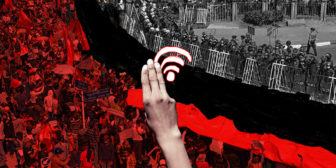
A call for global solidarity and decisive action to end Myanmar’s military rule and ensure victory for the people resisting dictatorship
Access Now and a coalition of human rights organizations call on the international and business community to resist the digital coup in Myanmar.

The world must bring down Myanmar’s digital iron curtain
Today marks three years since Myanmar’s junta seized power in a violent coup. Access Now is calling on the international community to offer resources to resist digital oppression.
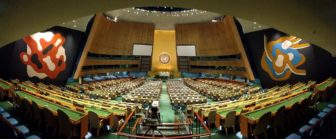
Access Now’s UNHRC statement: Urge arms embargo to stave off expanding military abuse of surveillance tools in Myanmar
Access Now addressed the United Nations Human Rights Council at its 53rd session regarding the intensified abuse of surveillance and digital tools by the Myanmar military, ahead of the elections.
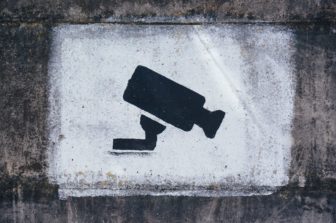
Track and target: FAQ on Myanmar CCTV cameras and facial recognition
The military junta in Myanmar is rolling out China-made CCTV cameras with facial recognition capabilities to intensify surveillance against the people.

Myanmar IMEI FAQ: how the junta could disconnect the resistance
Myanmar’s proposed IMEI rules raise surveillance and connectivity risks. Telco operators must prepare to push back.

Myanmar’s “counter-terrorism” by-laws must be denounced for what they are – illegal
Myanmar’s counter-terrorism by-laws will allow the junta to access people’s personal data and tag them as terrorists.
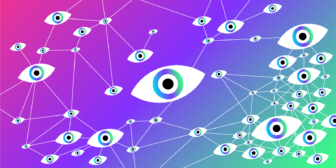
Telegram used to identify Myanmar Junta opponents

Myanmar cannot wait: Only coordinated global pushback will stop escalating violence and repression
Internet shutdowns and connectivity

Internet shutdowns in Myanmar: facilitating brutal human rights violations in 2022
#KeepItOn shows that internet shutdowns in Myanmar facilitated brutal human rights violations in 2022.

Internet shutdowns shroud and facilitate brutality of Myanmar junta’s airstrike in Hpakant township
Access Now condemns the ongoing war crimes committed by the military in Myanmar, and its use of internet shutdowns to conceal the atrocities.
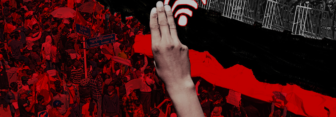
Open call to all international actors: do more to stop internet shutdowns shrouding torchings and killings in Myanmar
International actors must do more to stop internet shutdowns shrouding torchings and killings in Myanmar

UN Experts join civil society in condemning Myanmar military’s “digital dictatorship” and call for Member State action
Access Now supports UN human rights experts’ condemnation of the Myanmar military’s efforts to cement a “digital dictatorship.”
Incitement to violence and censorship online

Meta and Google must use their powers to stop Myanmar’s alternative propaganda machine
The Myanmar junta is building an alternative propaganda machine and banning Youtube and Facebook across the country. MTube and OKPar apps are being offered as alternatives.
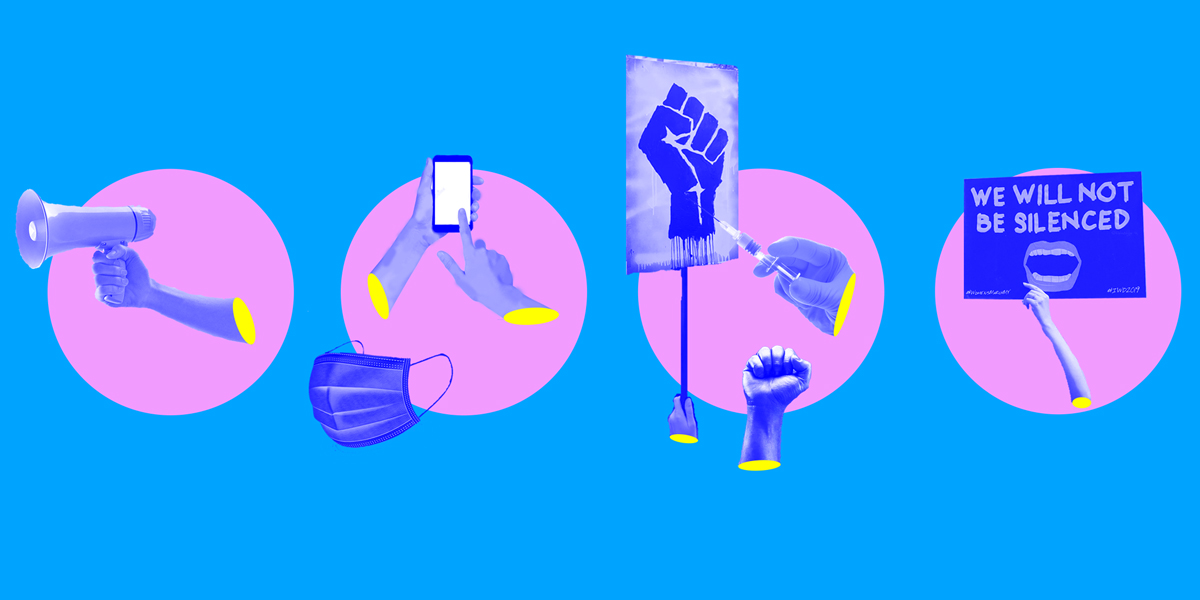
Analysis: the Myanmar junta’s Cybersecurity Law would be a disaster for human rights
The Myanmar junta’s efforts to achieve ultimate control over civic space is continuing — through a devastating draft Cybersecurity Law.
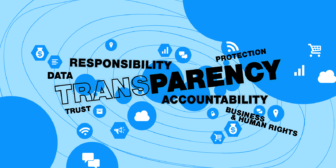
Access Now to Telegram: protect the rights of 500 million people
Access Now and a coalition of civil society organizations are sounding the alarm over safety and security issues plaguing Telegram.

Myanmar’s ‘digital dictatorship’ aims to criminalize VPNs
FAQS
WHAT DOES MYANMAR’S ONLINE SPACE LOOK LIKE?
Myanmar’s online space is severely restricted. The military increasingly abuses digital tools to track and target people, facilitating serious human rights violations and offline attacks:
- Targeted internet shutdowns that facilitate and shroud serious human rights violations, including of the rights to privacy, freedom of expression, association and assembly, security, life, education, health, and an adequate standard of living, are currently targeting all townships in Myanmar.
- Expansion of surveillance infrastructure, including the procurement and installation of biometric tools, have strengthened the military’s ability to track and target individuals’ movements, networks, communications, and personal information. They will — potentially also facilitate the railroading of subservient voting in military-imposed elections.
- Takeover of thetelecommunications industry following the exit of Telenor and Ooredoo — the last non-military connected telcos operating in the country — and the activation of intercept surveillance technologies across national networks is seriously undermining privacy and security, and facilitating the increased targeting of human rights defenders.
How is the junta weaponizing internet shutdowns in Myanmar?
The junta is using targeted internet shutdowns in areas where resistance is strongest — Karenni, Kachin, Sagaing, Magway, and Chin — to isolate and prevent documentation of its violence. The systematic blockings of internet connections often coincide with protests and burning of villages known to be opposition strongholds. When the military shuts down the internet, people cannot access life-saving information as they flee their homes.
Since the start of 2022, all 330 townships in the country have been subjected to shutdowns at least once, and more than 50 townships have been cut off for almost two years.
Find out more about internet shutdowns in Myanmar by reading Access Now’s report, Weapons of control, shields of impunity: Internet shutdowns in 2022.
What tools are being deployed to increase surveillance in Myanmar?
The military is determined to strengthen its ability to track and target people in Myanmar, and is deploying:
- An expanded network of CCTV and facial recognition technologies, some of which have been purchased from Chinese companies implicated in rights violations in Xinjiang.
- Revamped SIM card and IMEI registration measures that require people to disclose personal details to military-controlled or linked telecommunications companies, where intercept technologies are already activated to monitor communications.
- Building a national database connecting national ID and household registration data with personal information like addresses, fingerprints, photos, and banking details.
How is the junta infiltrating and manipulating the telecommunications sector to censor people in Myanmar?
All four of Myanmar’s telecommunications companies are now military-owned or controlled by companies with close links to the military, making it easy to order the activation of intercept technologies that can monitor people’s communications and location. These are following:
- Nine Communications, a Singapore-based subsidiary of Link Family Office and military-linked Nyan Win, which bought out Ooredoo.
- M1 Group, which bought Telenor Myanmar through its Singapore-registered entity, Investcom Pte Ltd — the majority of which is owned by the military-linked Shwe Byain Phyu Group.
- Myanma Posts and Telecommunications (MPT), a state-backed telecommunications company.
- Mytel, a venture between the military and Viettel, owned by Vietnam’s defense ministry.
Aside from the self-censoring effect when personal communications are blatantly monitored, the military is also curtailing freedom of expression by making it infinitely more difficult to access and use telecommunications and internet services:
- Price hikes and onerous SIM card registration requirements make it difficult for people to access the internet, especially given the dire economic challenges worsened by the coup.
- Phone seizures and hacking are being abused by the military to monitor and target individuals deemed to oppose the regime, as well as members of their families and communities.
- The draft Cybersecurity Law threatens to criminalize the use of Virtual Private Networks (VPNs) — a vital tool for anyone attempting to safely navigate online spaces through their computers and mobile devices.
- Bylaws under the Counterterrorism Law are facilitating the interception of personal communications and dramatically increasing the online and offline risks faced by people voicing opposition to the military — with severe penalties.
What can technology and telecommunications companies in Myanmar do?
- Continuously and transparently engage in dialogue with civil society to effectively identify and address human rights challenges and risks that may arise from decisions about their operations in Myanmar.
- Conduct heightened due diligence in line with international human rights standards to ensure that their products and services are not being used by the military or military-controlled actors to violate human rights, and immediately remove tools used to facilitate rights abuses from the market.
- Immediately implement safeguards and redress mechanisms to protect users at risk, including data protection and privacy safeguards to resist increasing attempts to extend surveillance, censorship, and rights violations, and actively and regularly engage key stakeholders on mechanisms for redress and accountability.
For more information, see guidance documents from Access Now:
What can the international community do to fight against Myanmar’s digital dictatorship?
- Demand accountability from authorities responsible for internet shutdowns used to facilitate and shroud gross human rights violations and alleged war crimes.
- Help provide alternative means for people in Myanmar to safely access the internet.
- Call for a comprehensive arms embargo, including a ban on the sale or transfer of surveillance technologies, equipment, intelligence or related assistance to the military, particularly “dual-use” and biometric technologies enabling mass and discriminatory targeted surveillance.
- Provide tangible funding and assistance to people in Myanmar facing immense risks and challenges navigating increasingly complicated visa, documentation, and relocation challenges.
- Continue to keep political attention and will on Myanmar, by highlighting the deteriorating human rights crisis at the international, regional, and local levels. It is particularly vital to engage in countries where companies with investments in Myanmar are headquartered, where efforts to sanction military-linked officials have been robust, and where there are ongoing legal efforts to hold military officials to account.
- Support civil society and grassroots efforts, including the work of youth activists, education service providers, and women human rights defenders, in resisting the junta through advocacy.
Latest updates
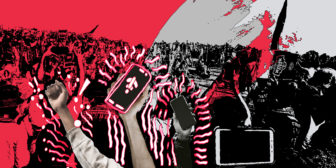
‘Cortina de ferro digital’ e liberdade de imprensa dizimada: violações se agravam nos três anos do golpe em Mianmar

The world must bring down Myanmar’s digital iron curtain
Today marks three years since Myanmar’s junta seized power in a violent coup. Access Now is calling on the international community to offer resources to resist digital oppression.

A call for global solidarity and decisive action to end Myanmar’s military rule and ensure victory for the people resisting dictatorship
Access Now and a coalition of human rights organizations call on the international and business community to resist the digital coup in Myanmar.

ကမ္ဘာ့မျက်မှောက်ရေးရာ။

Content and platform governance in times of crisis: applying international humanitarian, criminal, and human rights law
This new report discusses the application of international humanitarian, criminal, and human rights law in content governance in crises.
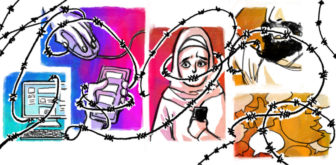
Joint Statement: Internet Governance Forum must reverse decision to make Saudi Arabia its next host
An IGF 2024 hosted by Saudi Arabia is incompatible with the event’s multistakeholder model, as human rights risks make robust civil society engagement impossible.

Access Now’s UNHRC statement: Urge arms embargo to stave off expanding military abuse of surveillance tools in Myanmar
Access Now addressed the United Nations Human Rights Council at its 53rd session regarding the intensified abuse of surveillance and digital tools by the Myanmar military, ahead of the elections.

Access Now’s UNHRC statement: Urge arms embargo to stave off expanding military abuse of surveillance and digital tools against people of Myanmar
Access Now’s UNHRC statement: Urge arms embargo to stave off expanding military abuse of surveillance and digital tools against people of Myanmar

Myanmar Junta Steps Up Efforts to Monitor, Silence Perceived Online Critics

Joint Statement: Passport and visa systems must not exclude members of the human rights community from cross-border convenings
These discriminatory systems prevent human rights defenders from coming together to advance their work, bring severe hardship and harm to those impacted, and unjustly place the heaviest burden on people from the Global Majority. Join us in taking a stand.

Who is shutting down the internet in 2023? A mid-year update
Since the beginning of 2023, governments around the world are discovering new reasons to disrupt internet access during key national moments.

Tech and conflict: a guide for responsible business conduct
This guide is meant to help tech companies think through the impacts of their decisions in the context of conflict.

Myanmar Junta Cracks Down on Social Media Posts Deemed Anti-Regime

KBZ users struggle under junta surveillance

Myanmar’s “counter-terrorism” by-laws must be denounced for what they are – illegal
Myanmar’s counter-terrorism by-laws will allow the junta to access people’s personal data and tag them as terrorists.
